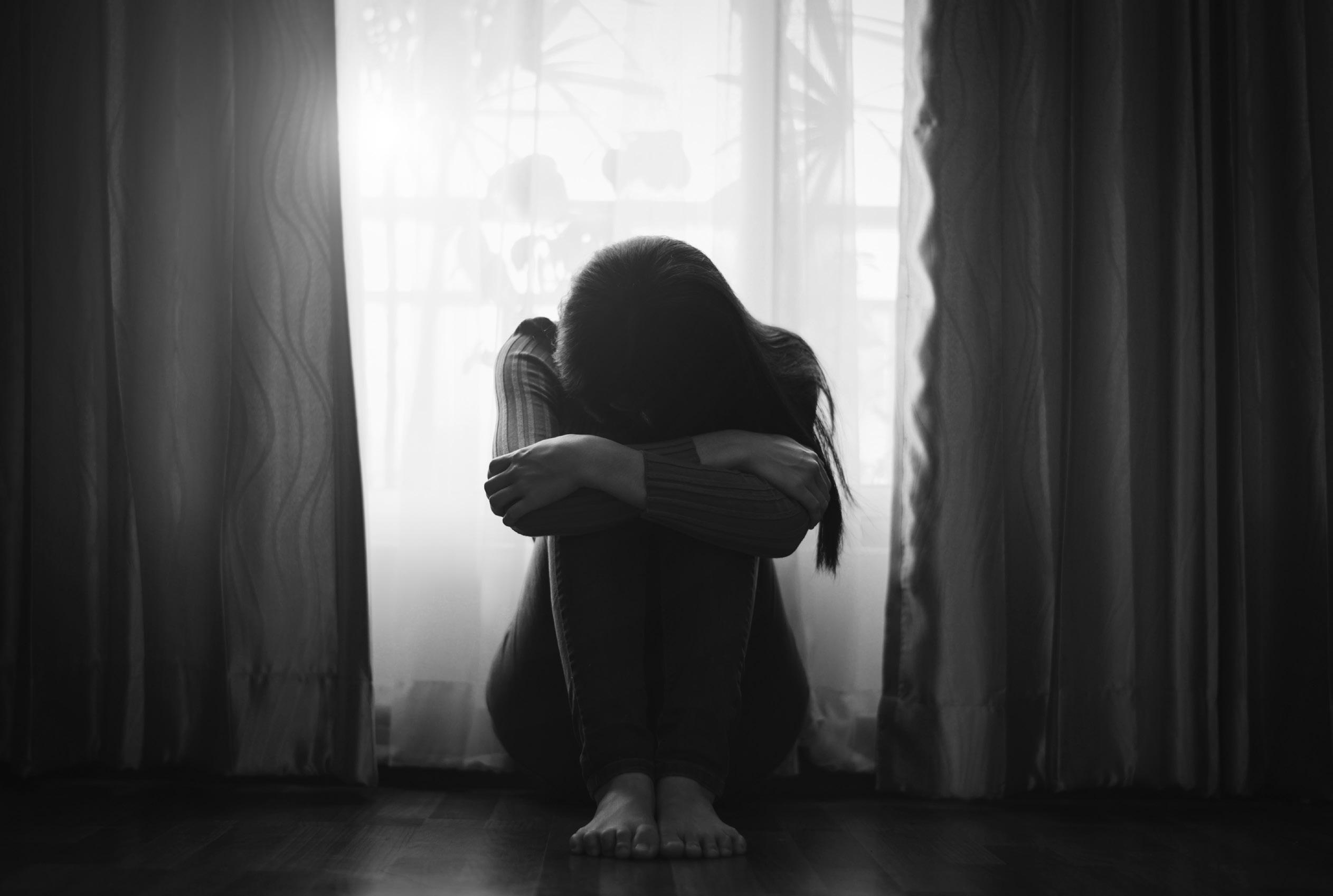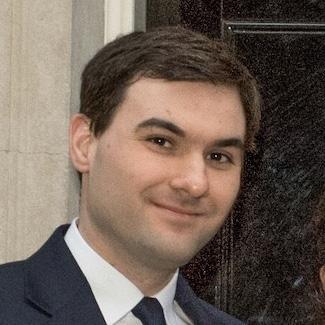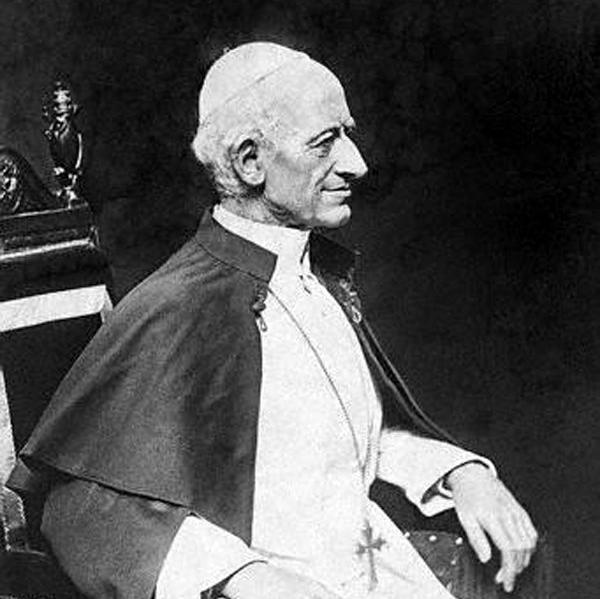
23 minute read
A pandemic that defined abortion as “essential”
This is a special edition of Calx Mariae, because of its length and the circumstances in which it has been produced. For the past three months, our temporal and spiritual life has been altered as never before. Not only have political leaders ordered the lockdown of nations but spiritual leaders have blocked access to the sacraments in many parts of the world. The full meaning of this is still emerging and questions will continue to arise in the months ahead.
Many of these questions were addressed at our online Rome Life Forum on the theme “Coronavirus in the light of Fatima: a tragedy and a source of hope”, covered fully in the FOCUS section of this edition. Are we experiencing the aftermath of leaving Our Lady’s call made in Fatima unanswered? Do her requests still stand today? Is this a chastisement? What can we do to remedy the situation?
Advertisement
In 1917, like now, it was a lovely summer, but the battles of the Somme, Verdun, the Nivelle offensive, and unrestricted submarine warfare had, as historian Warren Carroll put it, made Europe resemble an antechamber of Hell. Benedict XV spoke of the “suicide of civilised Europe” and made his appeal to the Queen of Peace on 5 May: “To Mary, then, who is the Mother of Mercy and omnipotent by grace, let loving and devout appeal go up from every corner of the earth – from noble temples and tiniest chapels, from royal palaces and mansions of the rich as from the poorest hut – from blood-drenched plains and seas. Let it bear to Her the anguished cry of mothers and wives, the wailing of innocent little ones, the sighs of every generous heart: that Her most tender and benign solicitude may be moved and the peace we ask for be obtained for our agitated world.”
Only eight days later, on 13 May, she came. In the fields of Cova da Iria, she gave the three little shepherds instructions to bring about the triumph of Her Immaculate Heart, so that a period of peace might be granted to the world. First, prayer, particularly devotion to the Holy Rosary and the Brown Scapular; second, reparation for the sins and outrages perpetrated against God’s grace and blasphemies against the Holy Hearts of Jesus and Mary; and third, the consecration of Russia to Her Immaculate Heart.
She warned that if Russia was not consecrated, it would spread its errors throughout the world. The evil of atheistic communism, which first seized power in Russia, still spreads today, not least through the influence of the government of China. This ideological virus, of which COVID-19 could act as a symbolic reminder, has truly infected our society. Abortion, first legalised in communist Russia, is now promoted by the United Nations as “essential healthcare”. The strategic goals of communism include breaking down all standards of morality, by promoting pornography; presenting homosexuality as “normal, natural, healthy”; replacing revealed religion with “social” religion; discrediting the family; encouraging promiscuity and divorce, and “liberating” children from the “negative and suppressive influence of parents”.
Lucia, Francesco and Jacinta knew nothing of Russia where the revolution was still a few months away. But Our Lady’s wishes were clear and infinitely dear to them. Three years later, just before her death, Jacinta told Lucia: “We shall never meet again. Pray for me a lot till I go to Heaven, and afterwards, I’ll pray for you. Never tell anybody the secret even if they kill you. Love Jesus and the Immaculate Heart of Mary very much and make many sacrifices for sinners.”
She was not quite ten years old, yet she knew how the errors Our Lady warned against are to be overcome. Our Lady predicted all the atrocities borne throughout the last 100 years, and which we continue to bear today. But she gave instructions on how to end these horrors and bring peace to our agitated world. She will keep her promises and it is by striving tirelessly for the fulfilment of her requests that we will help to hasten the triumph of Her Immaculate Heart.
EDITOR Maria Madise
EDITORIAL BOARD Liam Gibson Matthew McCusker John Smeaton John-Henry Westen
DESIGN & PRODUCTION EDITOR Selina Fang
EDITORIAL OFFICE VOICE OF THE FAMILY Unit B, 3 Whitacre Mews, Stannary Street, SE11 4AB, London, United Kingdom Tel: +44 (0)20 7820 3148 Email: editor@voiceofthefamily.com www.voiceofthefamily.com/calxmariae
PUBLICATION IS SPONSORED BY:
Special thanks to:
DISCLAIMER: Great care is taken to credit photos and seek permission before publishing. If you have a query regarding copyright, please contact the Editor. No part of this magazine may be reproduced without written permission. Donations for the continuation of this magazine in print will be gratefully received by Voice of the Family at the address above or online via: www.voiceofthefamily.com/donate
Calx Mariae seeks to contribute to the rebuilding of Christian civilisation by providing features and analysis in the areas of life, family and culture. Our aim in producing this magazine is to strengthen our readers in the faith and in their witness to the truth about human life and the family. Calx Mariae is published by Voice of the Family, an international coalition of prolife and pro-family organisations formed in support of Catholic teaching on the family. The following truths are particularly at the heart of Voice of the Family’s work:
9 Marriage, the exclusive, life-long union of one man and one woman, is the foundation of a stable and flourishing society and is the greatest protector of children, born and unborn. 9 The procreative and unitive ends of the conjugal act cannot licitly be separated; the rejection of this truth lies at the root of modern attacks on life and the family. 9 Parents are the primary educators of their children and the protection of this right is essential for building a new
“culture of life”.
A PANDEMIC THAT DEFINED AS “ESSENTIAL”abortion
by MARIA MADISE
On 25 March, António Guterres, the UN Secretary-General, launched a $2 billion “global humanitarian response plan” to help “the world’s poorest countries” deal with the coronavirus pandemic.1 He tweeted: “COVID-19 is menacing the whole of humanity – and so the whole of humanity must fight back.” However, Guterres’ plan to “address the needs of the most vulnerable people” designates “sexual and reproductive health” as a strategic priority and makes it a specific objective of the UN’s response.2
Guterres’ policy brief on the impact of COVID-19 on women, published in April, similarly pointed out that:
“While early reports reveal more men are dying as a result of COVID-19, the health of women generally is adversely impacted through the reallocation of resources and priorities, including sexual and reproductive health services.”3
The term “sexual and reproductive health” has long been understood by UN agencies and many of the world’s most powerful governments to include contraception and abortion. This is made explicitly clear by the UN Human Rights Commission’s “COVID-19 Guidance”, which states: “[r]esources should not be diverted away from essential sexual and reproductive health services” and describes them as “a life-saving priority and integral to the response, including access to contraception; …safe abortion care; and effective referral pathways…”4
The coronavirus pandemic, therefore, has provided the abortion advocates in the UN with a golden opportunity to promote even greater access to contraception and abortion across the globe. In fact, it seems that the UN health agency, the World Health Organization (WHO) was well prepared to advance its abortion agenda during the COVID-19 lockdown.5
Dr. Antonella Lavalanet, a medical officer with the WHO’s “Maternal and Perinatal Health & Preventing Unsafe Abortion Team”, revealed at the end of March that the UN authority on global health is working on a statement that would identify abortion as an “essential service” amid the COVID-19 outbreak.6 However, mifepristone and misoprostol, the drugs used in chemical abortions, have been on the WHO list of “essential medicines” since, at least, 2007.7 This means access to these must be maintained, as a matter of priority, even if supply chains are damaged, due to something like a pandemic.
The WHO 2018 guidance on medical abortion explains that abortion drugs are considered essential in view of situations where access to abortion facilities become restricted:

“…many interventions in medical abortion care, particularly those in early pregnancy, can be provided at the primary care level and on an outpatient basis, which further increases access to care. …Given the nature of the medical abortion
process, it is also possible for individuals to play a role in managing some of the components by themselves, outside of a health-care facility.”8
The document also refers to another WHO guidance document on “Health worker roles in providing safe abortion and post-abortion contraception” (2015), which recommends that women “self-manage” their mifepristone and/or misoprostol medication without direct supervision of a health-care provider, as well as “self-assess” the success of the abortion using pregnancy tests and checklists.9
It might be argued that while it is considered to be the role of the WHO to set health standards for the entire world, none of its guidance is legally binding. But at the time of a global health emergency, it is, nevertheless, inevitable that this body should appear centre stage and governments worldwide will look to it for recommendations and advice when setting the priorities for their healthcare systems.
Dr. Lavalanet explained that the WHO was also meeting with advocates who insist that abortion is an “essential service” among sexual and reproductive health services “in response to governments who are trying to deprioritise these services”. She concluded her report by affirming that “we have seen some countries actually create guidance for this time during COVID using the information from within our guidelines”.10
This rings painfully true in the UK where the government, after the fiasco of publishing three contradictory statements on the issue of home abortions in the course of one week in April, finally yielded to the abortion lobby and authorised women to kill their babies at home without any medical supervision. With this move, the government showed that although it had ordered a lockdown of its nation to save lives threatened by the virus, the crisis had not really helped it to understand the value of human life.
In addition to trivialising the killing of unborn children, there is reason to believe that such abortions will heighten physical and psychological risks for women. How can a doctor assess the baby’s age, identify a possible ectopic pregnancy or other med-

ical conditions over the phone or the internet? The government, therefore, has also demonstrated how little it cares about the families and mothers who, at a time when medical supervision is increasingly impersonalised and help in general may be more difficult to access, make the fatal choice of killing their unborn child in their own home.
The UK was by no means the only government to follow the advice of international abortion advocates. In a joint resolution, passed on 17 April, the European Parliament called on member states to:
“effectively guarantee safe and timely access to sexual and reproductive health and rights (SRHR) and the necessary healthcare services for all women and girls during the COVID-19 pandemic, especially access to contraception, including emergency contraception, and to abortion care…”11
In France, home abortions were already legal in the first seven weeks of pregnancy, but this was extended to nine weeks due to the pandemic. The French government proudly announced that abortion remains an essential medical procedure during the COVID-19 pandemic and doctors should continue to offer them. Doctors and midwives were allowed to prescribe the drugs over the phone or by video consultation.12
In Ireland, where abortion was legalised by popular vote just two years ago, the Department of Health also authorised women to abort their children at home during the COVID-19 emergency, dispensing them of the requirement to visit a doctor to obtain the drugs and recommended opting for a remote consultation by phone or video call instead.
While many lamented that in Spain, like in other countries with more severe lockdown measures, access to abortion became harder, the Spanish Association of Clinics Accredited for the Voluntary Termination of Pregnancy tweeted that its clinics remained open because abortion is part of the country’s national health programme. “It’s an urgent resource which cannot be postponed and should be attended to promptly,” the association said.13
Some EU countries like Italy, the Netherlands, Hungary, Slovakia, Poland and Lithuania seemed to ignore the global advice to prioritise access to abortion, while other countries, such as Estonia, where medical abortion was already quite widespread, seemed to either quietly raise its time limit to the full extent of the abortion law or allow abortion drugs to be administered at home, or both.
Early in the outbreak, Canadian authorities declared that abortion remains available as an “essential service” during the pandemic. Women were encouraged to opt for medical abortions for social distancing reasons, although the availability of abortion drugs had to be confirmed with the patient’s local pharmacy before a prescription could be issued over the phone.
In the USA, where a number of states moved to deem abortion a non-essential service, several organizations, such as the American Medical Association, and abortion advocacy groups issued statements highly critical of any restrictions. Legal challenges on behalf of abortion providers, including the abortion giant Planned Parenthood (which partners with the WHO via its special Human Reproduction Programme) also managed to stop some of the orders restricting abortion services as non-essential.
The glaring hypocrisy revealed by the ongoing trench warfare over whether or not the killing of unborn children is essential, can be summarised in the behaviour of Andrew Cuomo, the Governor of New York. On 20 March, Cuomo said that his dramatic measures to shut down New York were worth it to save “just one life”, yet abortions in the state’s Planned Parenthood clinics continued. In January last year,
the same governor signed into law the Reproductive Health Act which allows the killing of babies throughout pregnancy until birth.
These are just some examples that reveal how the abortion lobby works through international institutions and national governments at a time of crisis to pursue its agenda. The result of an ever-increasing attack on the unborn, who are truly the most vulnerable people in the world, is a dehumanised society. Furthermore, a society which considers the killing of unborn children in their mother’s womb to be a right is a barbaric society, but a society which views abortion as a priority at a time of crisis when people are faced with serious choices and sacrifices has something demonic about it. It brings death into the bosom of the family, which by its nature is called to be the sanctuary of life.
Although the new regulations promoting home abortion are said to be a temporary response to the COVID-19 pandemic, such emergency measures also have the potential to change the provision of abortion and society’s perception of it in the long-term. As the lockdown restrictions are being lifted in country after country, it remains to be seen, how the abortion industry will react. However, it is difficult to imagine that they would easily let go of the victories they have gained.
Today the reality is that in many places, abortion drugs are just a phone call away. Therefore, what indeed is essential is that we work more vigorously than ever before to expose the evil of abortion – in our families, our parishes, among friends, in our schools and in public. No woman who picks up the phone to request abortion drugs is going to hear the truth about the life she carries within her or be told about the consequences of ending that life.
We should also consider that the society that misleads its daughters by telling them that it is safe to have an abortion at home, while it is dangerous to go to confession or see a priest, is a society desperately in need of penance. While thousands of people have sadly died due to COVID-19, despite the efforts of governments and dedicated medical personnel, undoubtedly more unborn babies have continued to die with the explicit support of those same governments and the medical profession. We do not have to account to God, as a people, for those who die of natural causes. But we will need to answer for what we did or didn’t do to save the least of His brethren.14 It is the unborn children threatened by abortion who are, in fact, the most vulnerable members of the human family. In the battle to protect their lives, let us never give up, let us never surrender.
ENDNOTES:
1. Funding the fight against COVID-19 in the world’s poorest countries, UN Department of Global Communications, 25 March 2020; https://www.un.org/en/un-coronavirus-communications-team/funding-fight-against-COVID-19-world%E2%80%99spoorest-countries 2. Global Humanitarian Response Plan for COVID-19, United Nations Coordinated Appeal, April-December 2020; https://www.unocha.org/sites/unocha/files/Global-Humanitarian-Response-Plan-COVID-19.pdf?fbclid=IwAR2ESmB8EKJj7wJudGmccVIjEWZVpoD7bPdfxeqzz82F2rvH_vOZm7K3sBY 3. UN Policy Brief: The COVID-19 Impact on Women, 9 April 2020; https://www. unwomen.org/-/media/headquarters/attachments/sections/library/publications/2020/policy-brief-the-impact-of-COVID-19-on-women-en.pdf?la=en&vs=1406 4. COVID-19 GUIDANCE, UN Human Rights: Office of the High Commissioner, 27 April 2020; https://www.ohchr.org/Documents/Events/COVID-19_Guidance.pdf 5. “Pro-abortion World Health Organization has prepared for years to exploit a pandemic”, SPUC, 2 April 2020; https://www.spuc.org.uk/News/ID/384355/ Pro-abortion-World-Health-Organization-has-prepared-for-years-to-exploita-pandemic 6. “COVID-19: What implications for sexual and reproductive health and rights?”, Sexual and Reproductive Health Matters, 27 March 2020, webinar; http://www. srhm.org/news/covid-19-what-implications-for-sexual-and-reproductive-healthand-rights/ 7. WHO Model List of Essential Medicines, 15th list, March 2007; https://apps.who. int/iris/bitstream/handle/10665/70656/a95075_eng.pdf?sequence=1 8. Medical Management of Abortion, World Health Organization 2018, p. 1-2; https:// www.who.int/reproductivehealth/guideline-medical-abortion-care/en/ 9. Health worker roles in providing safe abortion care and post-abortion contraception, World Health Organization 2015; https://www.who.int/reproductivehealth/ publications/unsafe_abortion/abortion-task-shifting/en/ 10. “COVID-19: What implications for sexual and reproductive health and rights?”, Sexual and Reproductive Health Matters, 27 March 2020, webinar; http://www. srhm.org/news/covid-19-what-implications-for-sexual-and-reproductive-healthand-rights/ 11. European Parliament resolution of 17 April 2020 on EU coordinated action to combat the COVID-19 pandemic and its consequences (2020/2616(RSP)); https:// www.europarl.europa.eu/doceo/document/TA-9-2020-0054_EN.html 12. “France extends access to abortions during COVID-19 pandemic”, RFI, 11 April 2020; http://www.rfi.fr/en/france/20200411-france-extends-access-to-abortions-during-covid-19-pandemic 13. Laura Smith-Spark, “Abortion access thrown into jeopardy by coronavirus pandemic”, CNN, 9 April 2020; https://edition.cnn.com/2020/03/27/health/coronavirus-abortion-access-intl/index.html 14. “And the king answering shall say to them: Amen I say to you, as long as you did it to one of these my least brethren, you did it to me.” (Mt. 25:40)
Law and liberty BRITAIN’S RESPONSE TO THE PANDEMIC
by MATTHEW MCCUSKER
Since the last edition of Calx Mariae the COVID-19 pandemic has plunged millions of people into a prolonged period of anxiety and distress. Many are mourning the loss of loved ones or fearing for their own wellbeing and for the health of those close to them. Millions worldwide have had their lives disrupted, their businesses and livelihoods destroyed, and their hopes and plans for the future thrown into disarray.
As I write this article Britain has been in lockdown for 57 days, with regulations only now beginning to be relaxed. Under the Health Protection Regulations 2020 the English people have effectively been placed under house arrest, prohibited by law from leaving their own homes except on certain very limited grounds. (And almost identical restrictions have been imposed across the UK). A wide range of businesses have been closed down by order of the state. These extraordinary actions – by far the most draconian restrictions on liberty ever seen in our islands – would have been wholly unthinkable to our ancestors, up to just a couple of generations ago.
It is therefore important to pause and reflect on the government’s actions in the light of the Church’s teaching on human liberty.

WHAT IS LIBERTY? “Liberty”, taught Pope Leo XIII in his encyclical letter Libertas, is “the highest of natural endowments”, which “confers on man this dignity – that he is ‘in the hand of his counsel’[Eccl. 15:14] and has power over his actions.”1
Man was created in the image and likeness of God (Gen. 1:26-27) and consequently possesses the faculties of intellect and will. These confer on man “natural liberty”, the ability “of choosing means fitted for the end proposed.”2 Man has free will, and thus is able to choose between good and evil: “on the use that is made of liberty the highest good and the greatest evil alike depend.”3
Pope Leo XIII taught:
“man is by nature rational. When, therefore, he acts according to reason, he acts of himself and according to his free will; and this is liberty. Whereas, when he sins, he acts in opposition to reason, is moved by another… Therefore, ‘whosoever committeth sin is the slave of sin.’[Jn. 8:34]”
God directs man towards his proper end by a law “implanted in rational creatures, and inclining them to their right action and end”.4 This is the “natural

law” which, “is nothing but our reason, commanding us to do right and forbidding sin”.5
However, as Pope Leo XIII explained in his encyclical letter Immortale Dei:
“Man's natural instinct moves him to live in civil society, for he cannot, if dwelling apart, provide himself with the necessary requirements of life, nor procure the means of developing his mental and moral faculties. Hence, it is divinely ordained that he should lead his life – be it family, or civil – with his fellow men, amongst whom alone his several wants can be adequately supplied.”
But:
“as no society can hold together unless someone be over all, directing all to strive earnestly for the common good, every body politic must have a ruling authority”.6
In order to fulfil its mission, the state has the authority to compel individuals to perform or refrain from certain acts, by means of “human laws” which must however conform to the natural and eternal law:
“the liberty of those who are in authority does not consist in the power to lay unreasonable and capricious commands upon their subjects, which would equally be criminal and would lead to the ruin of the commonwealth; but the binding force of human laws is in this, that they are to be regarded as applications of the eternal law, and incapable of sanctioning anything which is not contained in the eternal law, as in the principle of all law.”7
The Pope continued:
“If, then, by anyone in authority, something be sanctioned out of conformity with the principles of right reason, and consequently hurtful to the commonwealth, such an enactment can have no binding force of law, as being no rule of justice, but certain to lead men away from that good which is the very end of civil society.”8
Man is obliged to disobey or disregard all such invalid laws:

POPE LEO XIII, 1903.
“But where the power to command is wanting, or where a law is enacted contrary to reason, or to the eternal law, or to some ordinance of God, obedience is unlawful, lest, while obeying man, we become disobedient to God. Thus, an effectual barrier being opposed to tyranny, the authority in the State will not have all its own way, but the interests and rights of all will be safeguarded – the rights of individuals, of domestic society, and of all the members of the commonwealth; all being free to live according to law and right reason; and in this, as We have shown, true liberty really consists.”9
There are certain acts that the state simply cannot command subjects to commit, or refrain from committing; whatever good end it may intend. And a government must not take actions that it knows will have damaging consequences for its citizens, unless it has well founded reasons for believing that the evil it is trying to prevent is grave enough to warrant them. Like a doctor treating a patient, the state must “first do no harm”.
These principles are of great importance when considering attempts by governments to greatly restrict the liberty of their citizens, and to forbid morally good acts (e.g. visiting family members, going out to work to provide for one’s dependents and receiving the sacraments) in order to achieve another good end, in this case, the reduction in the number of lives lost to COVID-19. In this analysis, I will consider the impact of present government restrictions on (i) the economy, “In order to fulfil its mission, the state has the authority to compel individuals to perform or refrain from certain acts, by means of ‘ human laws’ which must however conform to the natural and eternal law.”
and consequently on the health and wellbeing of the nation and (ii) the preservation of our fundamental liberties for future generations.
ECONOMIC EFFECTS OF THE GOVERNMENT’S “LOCKDOWN” As I write this article the Chancellor of the Exchequer, Rishi Sunak, is warning that Britain is facing a recession “the likes of which we have not seen” and suggests that unemployment may be in “double figures” by the end of the year.10 This is the inevitable result of the lockdown policy adopted on 23 March 2020 – no other outcome could reasonably have been expected.
Every single one of us – whatever our stage of life or current employment status – is ultimately dependent on the wealth created by work, both our own labour (past or present) and that of others. When St. Paul said “the charge we gave you on our visit was that the man who refuses to work must be left to starve” (2 Thess. 3:10) he was simply expressing a fundamental truth about human life since the Fall; “thou shalt earn thy bread with the sweat of thy brow” God said to Adam “until thou goest back into the ground from which thou wast taken”. (Gen. 3:19) God has given us a world full of potential, but it is only through work, of whatever genuine kind, that the human race transforms that potential into real wealth, whether that be basic necessities like food, clothing and shelter, or the cultural riches of a civilised society. Man must work when he can, and be supported by the fruits of his labours, and those of others, when he cannot.
If a government “shuts down the economy”, it shuts down the creation of wealth. For the last 57 days the government has been pursuing a policy which, whatever end may be primarily intended, will increase poverty in our country. The lockdown, while intended to save lives, is already triggering a domino effect of economic collapse that has the potential to cause misery, distress, anxiety, panic, and a lower standard of living and of healthcare for hundreds of millions worldwide.
Assessing the impact of the lockdown on future health and wellbeing is a very difficult task, but some initial studies have suggested the potential scale of the destruction. Kenneth Rogoff, Professor of Economics and Public Policy at Harvard, predicts that the “economic catastrophe” is “likely to rival or exceed that of any recession in the last 150 years”, potentially leading to a “global depression”.11
A report for the Macro Strategy Partnership, a company that researches global markets, has concluded that “the costs of lockdown, in terms of human lives, may be not one but two orders of magnitude higher than the ‘cost’ of the disease”. And a study by members of the Actuarial Society of South Africa has concluded that the lockdown may lead to 29 times more lives lost than the deaths it seeks to prevent.12 Fraser Nelson, editor of the Spectator, revealed that government sources were discussing a report suggesting that the lockdown could result in up to 150,000 otherwise “avoidable deaths” in the UK.13
In 2016 the Lancet published a study linking 260,000 cancer deaths in 34 countries with the 2008 financial crisis. The deaths were due to reduced public spending on health and a reduction in the number of people who could afford medical insurance. They suggested that worldwide additional cancer deaths may have exceeded 500,000.14
The government took draconian action after a study produced by a team at Imperial College, the findings of which have been strongly challenged by a number of other scientists, suggested that in the worst case scenario, if no government action was taken, up to 500,000 lives could be lost to COVID-19. Yet, as shown above, there are many studies that suggest the consequences of government action could be equally, or more, appalling. Predictions of the consequences







